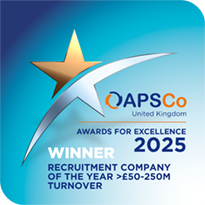Stepping into a new sector such as one as complex as nuclear power may seem daunting. In our average working day we’re used to hearing terminology and industry jargon, and can easily navigate our way through documentation and reports.
If you’re looking for a fresh challenge in the nuclear sector, we take a look at a few of the key terms you’ll need to know.
AGCR (or AGR)
Advanced gas cooled reactor, a second generation UK operated gas-cooled generator, using graphite to moderate the thermal reaction and carbon dioxide to cool. AGCRs operate at a much higher gas temperature to improve thermal efficiency.
BPSS (Also known as BSVR)
Baseline Personnel Security Standard – required level of background checking, conducted pre-employment, for anyone working on behalf of a government department.
CCNSG
The CCNSG Safety Passport is a nationally recognised qualification, designed to offer mandatory and essential safety knowledge to personnel who work on construction and engineering sites.
CTC
A Counter Terrorist Check is a clearance required for people who work in close proximity to public figures, have access to sensitive information, or whose role involves unrestricted access to government or commercial establishments considered to be at risk from terrorist attack.
D & A
Drug and Alcohol – nuclear sites will have comprehensive drug and alcohol policies and testing procedures to ensure safety onsite.
Decommissioning
Nuclear decommissioning is the process whereby a nuclear facility is dismantled to the point it no longer requires measures for radiation protection.
Dosimetry
The measurement, calculation and assessment of the ionising radiation dose absorbed by the human body.
DV
Developed Vetting (DV) is the highest level of Security Clearance and is required for people with substantial unsupervised access to top secret assets.
EDF Energy
An industry leading energy company, which builds and operates fleets of nuclear power stations throughout the UK and Europe. The UK sites include;
Hunterston B, Torness, Hartlepool, Heysham 1, Heysham 2, Dungeness B, Sizewell B and Hinkley Point B.
EPR
European Pressurised Reactor, or Evolutionary Power Reactor – third generation pressurised water reactors used to generate nuclear power.
Magnox
The management and operations contractor responsible for twelve nuclear sites and one hydroelectric plant in the UK, working for the sites’ owner, the Nuclear Decommissioning Authority. The list of UK sites includes; Berkley, Bradwell, Chapelcross, Dungeness A, Harwell, Hunterston A, Harwell, Hinkley Point A, Oldbury, Sizewell A, Trawsfynydd, Winfrith and Wylfa .
NDA
Nuclear Decommissioning Authority – the government body charged with ensuring the safe and efficient clean-up of nuclear power plants being decommissioned. NDA sites include Sellafield, and the Low Level Waste Repository at Drigg and Dounreay.
NIA
Nuclear Industry Association – trade organisation supporting the UK civil nuclear industry.
NISR
Nuclear Industries Security Regulations (NISR) 2003 sets out the guidelines by the ONR for on-site security.
Nuclear Institute
The professional body representing nuclear professionals in the UK.
ONR
Office of Nuclear Regulation – The UK’s safety regulator for ensuring nuclear power plants are operated in a satisfactory way.
Outage
The shutdown of a generating unit for maintenance, inspection or refuelling. Usually scheduled routinely over a duration, with extra labour support required to meet the turnaround deadline.
Reactor
Produces the thermal heat/energy that is converted into electricity.
SC
A Security Check is required for people who have substantial access to secret or occasional controlled access to top secret assets.
SQEP
Suitably qualified and experienced personnel – a person meeting the standard requirements for working on site including any mandatory qualifications and accreditations.


.png)


.png)


